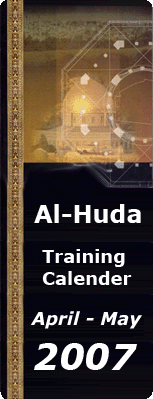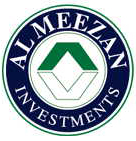| |
DUBAI — The $4.6 billion insurance market of the GCC has a potential to reach $20 billion if the world average insurance premium of $550 per capita is achieved and applied to the Gulf states, according to a study.
The study said insurance markets in the region are recognised as being underdeveloped, as is reflected by the relatively low level of insurance penetration relative to Western or even Eastern Europe. In the region, the penetration of all forms of insurance is low by global standards — European countries typically average around 10 per cent for life insurance, for example, while countries in the Middle East hover around the two per cent mark.
However, the development of the non-life insurance market in the region is strong, with premium growth of about 10 per cent to 15 per cent on average since 2004. "The proportion of personal lines insurance cover, however, and in particular life insurance, remains low," the study released by Standard & Poor's Ratings Services said.
"The opportunities for increased uptake of takaful in the GCC are positive because the considerable economic growth in the region, coupled with a sizable, underinsured population, means that there are substantial prospects for further development of personal lines cover," explained S&P credit analyst Jelena Bjelanovic. "The ability of the industry to demonstrate the need for and benefits of insurance, as well as to successfully meet customer demands, remains unproven, however."
The study, "Takaful: A New and Viable Insurance Business Model or Just A Marketing Opportunity?" noted that "based on current growth rates" takaful "could be the key to increasing insurance awareness among retail customers in the GCC, capitalising on the positive economic dynamics of the region." It said the GCC takaful (Islamic insurance) market, currently at $170 million, has also a potential to reach $4 billion at the current level of development.
Takaful is an Arabic word meaning “guaranteeing each other” or joint guarantee. Theoretically, Takaful is perceived as cooperative insurance, where members contribute a certain sum of money to a common pool. The purpose of this system is not profits but to uphold the principle of “bear ye one another’s burden.”
"Taking as an example Malaysia, where the takaful market is expected to contribute 20 per cent to the overall market in the medium term, the GCC takaful market has the potential to reach $4 billion at the current level of development.
"The GCC takaful market is currently growing at about 40 per cent per year, which is impressive relative to world markets, which experienced average premium growth of 2.5 per cent in 2005. How much actual premium the takaful sector generates and how quickly it will do so remains to be seen, however, and will depend on the industry's ability to deliver on policyholder expectations."
Noting that the region's takaful market faces some unusual challenges, the study said it has to match the service quality of the traditional insurance market and persuade an uninsured market to use the facilities of the takaful market. "But across the Gulf region we are now seeing traditional insurers accept risks into new takaful divisions or subsidiaries of the mainstream company. Although the takaful division is operated as a wholly Sharia-compliant unit, it is fully complementary to the noncompliant business. If this model achieves the three key requirements of meeting Sharia council approval, being accepted by the Islamic community and policyholders, and passing regulatory requirements, the probable benefits of economies of scale to the traditional company will prove a real challenge to the nascent takaful sector. Each of the approaches has its own merits," the report said. "The role of foreign insurers is also important, as they bring pockets of expertise in designing, for example, life products suited to local customers. This is gradually improving product choice, but the success of the takaful business model will depend on its ability to offer the same choice, range of products, level of cover, cost effectiveness, and, ultimately, quality of policyholder security, as traditional insurers," it said
|








